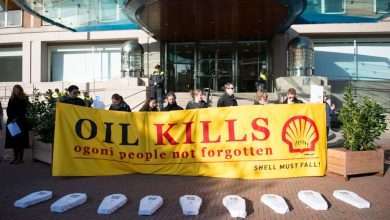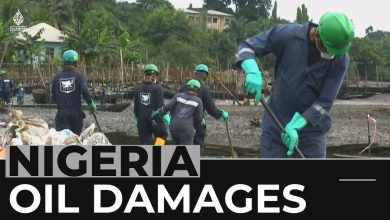Checking recurring cases of oil spillage
Despite tough measures put in place by the Federal Government and International Oil Companies to reduce oil spillage, the National Oil Spill Detection and Response Agency (NOSDRA) recently revealed that Nigeria lost 23,773 barrels or 3.4 million litres of crude oil in 2021 with 331 incidents. The figures were the outcome of a recent Joint Investigation Visits carried out at oil spill sites and given by oil firms operating in the country. This represents a 22 per cent increase in such incidents when compared to 18,563 barrels, an equivalent of 3 million barrels recorded in 2020 in 384 cases.
Nigeria also lost over $206million to oil spills in 2021 at $87 per barrel as at December 2021. With a total loss of $4billion worth of crude oil to thieves in nine months (from January- September) 2021, and $29billion in six years, spanning 2015 to 2021, and over N700billion spent on repairs and maintenance, this is a huge loss to the economy. Besides, Nigeria has lost an estimated N72 trillion due to oil spills on Ogoni oilfields since 1993 when Shell Petroleum Development Company (SPDC) exited the area.
According to NOSDRA, most of the spills were attributed to poor maintenance infrastructure, negligence by the oil companies, accidents, pipeline vandalism and other incidents. The agency also said that most of the oil spills last year occurred early in that year, and November 2021. For 2020, most of the crude oil spill happened in February when 6,327 barrels were lost, followed by 4,676 barrels recorded in January, while the third highest incident was recorded in July with 2,174 barrels lost.
A breakdown of the oil spill statistics shows that Shell recorded the highest number of 116 spill incidents, with a total volume of 4,110 barrels of crude oil during the period under review, followed by Mobil Producing Nigeria Unlimited with 30 incidents, but with the highest volume of spillage at 12,404 barrels. From the foregoing, it is clear that the oil sector remains a critical area that Nigeria needs to get it right. It has bigger challenges for the economy, as well as environmental and health implications of the people and their livelihood.
According to the National Oil Spillage Reduction Monitoring Agency, between 2015 and 2021, Nigeria recorded 4, 919 oil spills in the Niger Delta region, while oil spilled into the environment was put at 235,205 barrels. This does not include the hundreds of crude spilled at Nembe coastlines as a result of the major blast at Aiteo Eastern Exploration and Production Company (AEEPCO), operators of NNPC/Aiteo Joint Venture of Oil Mining Lease (OML) 29, in Bayelsa State. Most of the crude oil was reported to have offloaded over the sea, and into the coastal communities. Some of the oil spillages fall under a “tier two category,” meaning that they are beyond the capacity of a single company to handle. In the case of the Shebah Exploration and Products Company Ltd, whose vessel that contained 60,000 barrels of crude oil caught fire last year, the attendant human and environmental impact could only be imagined. It is time for the oil companies to be held accountable for their own errors. For years, oil spills and related pollution have damaged the soil, ecosystem, water, aquatic life, exposing living organisms to near extinction in many oil-bearing communities. The tragedy of oil spillage on Ogoniland remains unbearable, even years after Shell was forced to exit the place, with loss of human lives and incalculable loss to the economy that was put at over $178 million, according to the President of the Movement for the Survival of the Ogoni People (MOSOP), Mr. Fegalo Nsuke.
At the request of the Federal Government, the United Nations Environmental Programme (UNEP) carried out a survey to determine the extent of oil pollution in Ogoniland. The result showed an extensive oil contamination of rivers, creeks and ground water had caused severe impact on the ecosystem and human health. The survey also showed that oil spills of varying magnitude originated from facilities and pipeline leak from ageing, dilapidated and abandoned infrastructure during transport and artisenal refining of stolen oil. There is no doubt the oil spills have become a big issue in the sector.
Therefore, oil companies should be compelled to fund the clean-up of any oil spill in their area of operations and pay adequate compensation if the spill is found to be their fault. The relevant provisions in the Petroleum Industry Act (PIA) should be enforced as a deterrent. Stringent legislative measures are needed to tackle oil spills. Recent report by the Nigerian Extractive Industries Transparency Initiative(NEITI) showed that measures put in place by government and oil companies are not enough. The problem is rather getting worse.
Oil companies must regularly test their emergency spill response procedures and capability to ensure their prompt response and effectiveness to spill incidents. As a result of oil spill and theft, Nigeria has been unable to meet its quota allocated by the Organisation of Petroleum Exporting Countries (OPEC) of 1.68 million bpd for January 2022, and 1.701 million bpd for February, and barely exceeded 1.25 million bpd in the last few months. This is below the projected budget benchmark for the year.
Culled from Sunnews





